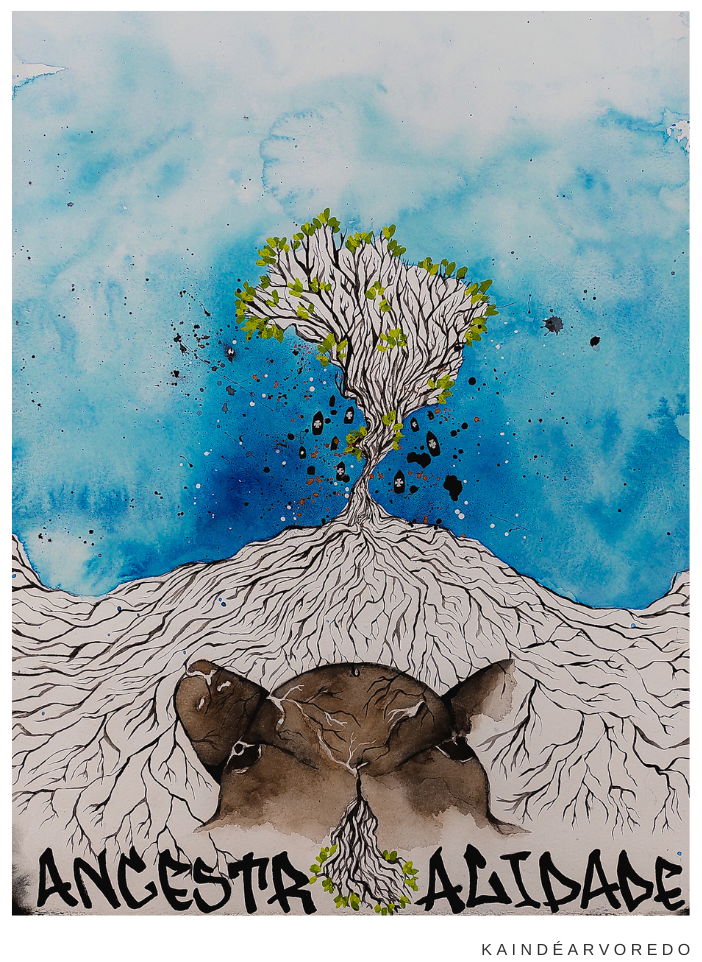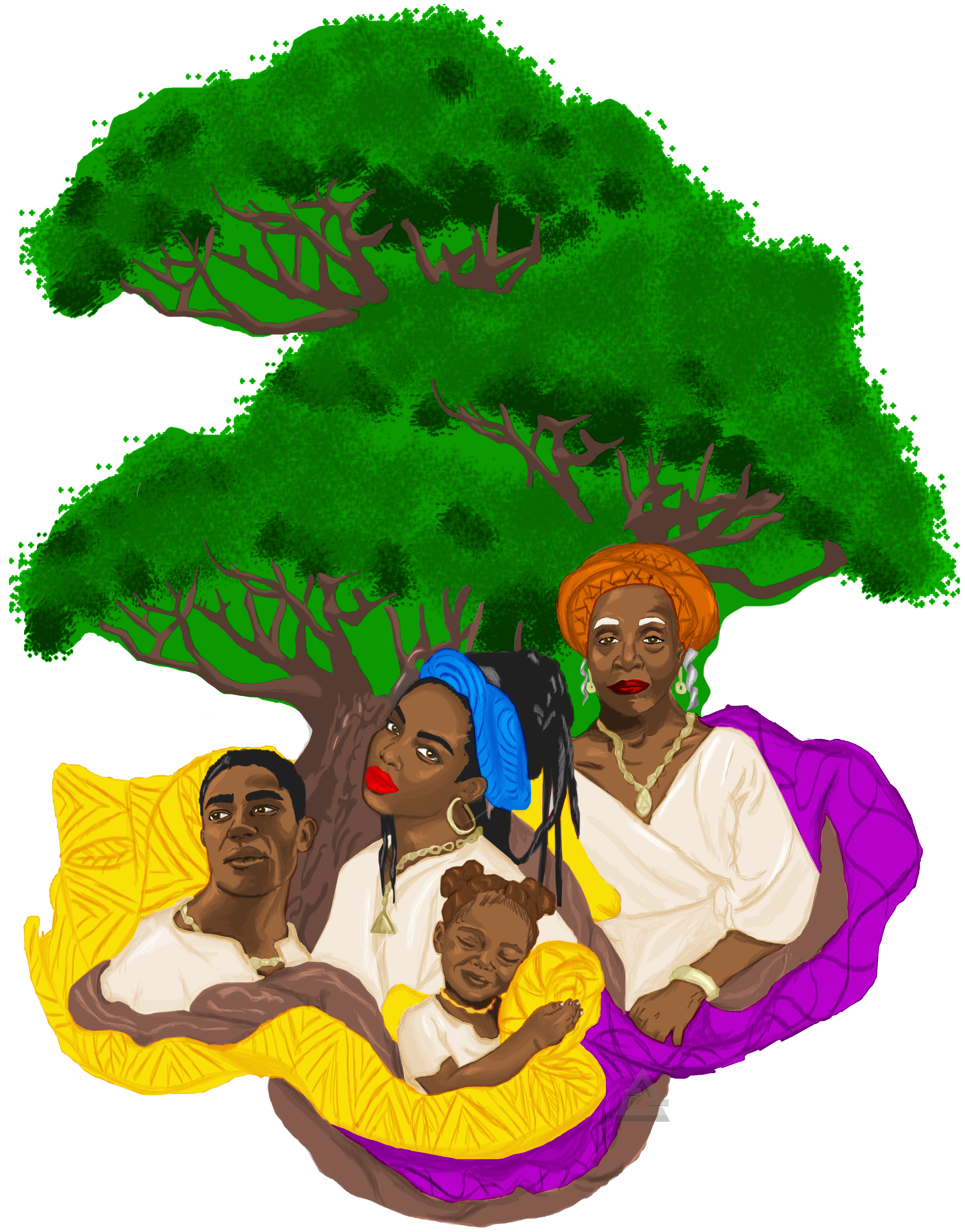
Year after year, over the course of more than a decade dedicated to studying the environment, I’ve seen what was not so long ago an issue of the future, become increasingly an urgency of the present. Climate change is now on people’s lips. We can no longer postpone to tomorrow something that’s already killing and causing material damages today. We need to address it today! The media presents us with content that conceptualizes, explains, gives examples, and debates climate issues. We need to talk about climate change! We need to talk about extreme weather events! We need to talk about environmental racism, about the people most affected by the State’s negligence and the lack of policies and concrete solutions that go beyond technical, expensive, futuristic discussions that are generally out of touch with reality.
I bring here the urgency of someone who’s been debating, studying, and warning for years about the risks and consequences of the western lifestyle. It is urgent that we create solutions! We demand policies, preventative measures, proposals that encompass the diverse social and geographic realities of Brazil. It is necessary to invest in research so we better know how to deal with the transformations imposed by the western Anthropocene.
With the start of the year, we’ve seen heavy summer rains; forceful and voluminous rains are expected of the season. Vulnerable territories become climatically exposed to floods, flash floods and landslides, caused by decades of neglect and record volumes of rainfall. Lightning storms are also becoming increasingly intense.
I have seen those who blame the heavy rains and the way meteorology was modeled, such that it cannot predict the changes that the western way of life provoke on the Earth, the atmosphere, and the planet’s climate. I have seen and read about increasingly frequent extreme weather events. Parallel to this, however, emerges the essential debate about how climate change lifts the mask on environmental racism and how a racially defined portion of the population is increasingly made vulnerable, more exposed to the impacts of the environmental and climate crisis.
Although important, the endless debates on the transversality of socio-environmental questions don’t respond to the desperate call from those affected with the due urgency that climate change demands. Favelas, coastal communities, and other peripheral territories—sacrifice zones to the extreme events caused by climate changes—have been crying out and demanding concrete action from the government for years. Despite political fatigue, residents don’t give up and demand action beyond idle election promises. The environment requires action, realism, responsibility, and urgency. This should have been dealt with long ago, and the people know this.
Understanding the agency of the nature that surrounds us, the time and the seasons, beyond Man’s agency, is fundamental for the building of resilient communities. Replanning the drainage system of a city that floods, draining and depolluting rivers and lakes, and reusing the abundant rain water are examples of how to understand cities based on the new climatic reality of the planet. It is more important we guarantee people’s safety than meet historically established standards of urbanization that prioritize the reproduction of real estate capital. We need courage to fight against centuries of the standard, predatory and unequal urbanization that takes place in our cities.

In the midst of this state of affairs, the “by us for us” approach [of disinvested communities] assumes the role that ought to be taken up by the State—which is absent when it comes to protecting and serving but very present when it comes to killing. It’s at these moments that I say that what looks like generosity, solidarity among neighbors and empathy is nothing more than public policy. They are true, emergent public policies, that give life its deserved value. As bell hooks said:
“Love is a political act!”
Environmentally, it is very clear that love is public policy. In my article All We Have Is Us: A Narrative on Environmental Racism and on How Love, Action, and Relationships are Capable of Delaying Ends of the World, I discussed the importance of community and voluntary socio-environmental actions in the reparation, mitigation, and rescue policies responding to various high impact environmental incidents. It is in loving each other that we confront vulnerability and promote community resilience. It is in love facing down this predatory societal model based on lack of care for others, contempt for collectivity, and overvaluing the individual.
In 2019, the Intergovernmental Panel on Climate Change (IPCC) launched one of its most important reports: Climate Change and Land: An IPCC Special Report on Climate Change, Desertification, Land Degradation, Sustainable Land Management, Food Security and Greenhouse Gas Fluxes in Terrestrial Ecosystems. In this report, the scientific community acknowledged for the first time the need to watch and learn from traditional peoples and their ways of life, about production and nutrition, for these would be the solution in the fight against advancing climate change. Seeing the scientific movement value the people of the earth and their technologies, I reaffirm my political conviction that the future is ancestral.
Based on my experience as a Black woman from Brazil’s urban peripheries: the solidarity, collectivity and strength of action by Black women save millions of Brazilian lives. In many extreme situations, be they in relation to the climate, food insecurity, police violence, or the negation of other basic rights, it is the traditional knowledge of Black women and their ancestral technology that enable the life and futures of these territories.

And yet, while Black women are managing Brazil’s structural crises and alleviating their impact on the population through practical action, where are the authorities and their campaign promises? Where is the budget? Where are decisions made on policies for the favelas and the Afro-Brazilian population?
Brazil now has a Ministry of Racial Equality with a Black woman minister born and raised in the favelas of Complexo da Maré: Anielle Franco, sister of Marielle Franco, the Rio de Janeiro councillor assassinated almost five years ago. And we have a Ministry of Indigenous Peoples under the command of Sônia Guajajara, an indigenous leader from the Guajajara people of Maranhão and a São Paulo-elected federal deputy. Big steps are being taken in the necessary direction: giving power to Black and indigenous women, seeking to minimize the damages caused by the primacy of European colonial patriarchy, structural racism, and whiteness over centuries. This is the only path that can be taken to rebalance climate alterations in the long term.
In the urban peripheries, alleys, and ruins of indigenous villages and quilombos, Afro-Indigenous mothers are the ones that take up the “Ministry of the Front.” They are the ones who know the most efficient public policies to manage the chaos. They organize to save entire families through baskets of basic foodstuffs or collect furniture from someone who doesn’t want it anymore to help rebuild a home destroyed by rain. Going from one work opportunity to another, they raise the young people who grow up to build the world. It is by way of that herb she has in her garden that, as the older women taught, many times she saved her son and the neighbor’s children from illnesses, curses and the evil eye. Be it with pennyroyal, rue, or any other chaos-managing technology, Black women are in the territories creating political structures that enable life, the reconstruction of dignity, and a sense of community in the diaspora.
This text is an invitation to reflect on the leading role of Black women in the fight against environmental and climatic racism. It is an exercise in understanding love as a transforming political act and in recognizing the power of traditional peoples and community leaders in favelas. It is time to mobilize and aquilombar to delay ends of the world. This article was also an invitation for all to take part in the Global Climate Strike on March 3, 2023 at 9am with a walk between Jacarezinho and the neighboring Manguinhos favela—two of the territories most affected by the extreme weather events of summer 2023. The slogan of the North Zone act was “enough floods!” and the event aimed to bring visibility to people’s suffering in the two favelas. The event was organized by the Rio de Janeiro Climate Coalition, Forum for Climate Change and Socio Environmental Justice, Fase, Cebes, Asfoc, Sustainable Favela Network, People’s Watchdog Network for Sanitation and Health, Manguinhos Intersectoral Management Council, Manguinhos Community Council, Women of Attitude Organization, Samora Machel Residents’ Association, Nelson Mandela Residents’ Association, Parque Carlos Chagas Residents’ Association, and Nova Embratel Residents’ Association.

Gisele Moura is a Black woman, a child of the São Paulo peripheries that beat the odds and became an Environmental Scientist at the Federal University of Niterói (UFF). She is also a co-founder of the Black Center at the same program. Today, she is a coordinator of Rio’s Sustainable Favela Network (SFN)* and still finds time to create amazing crochet weaves.
*The Sustainable Favela Network (SFN) and RioOnWatch are projects of Catalytic Communities (CatComm).
